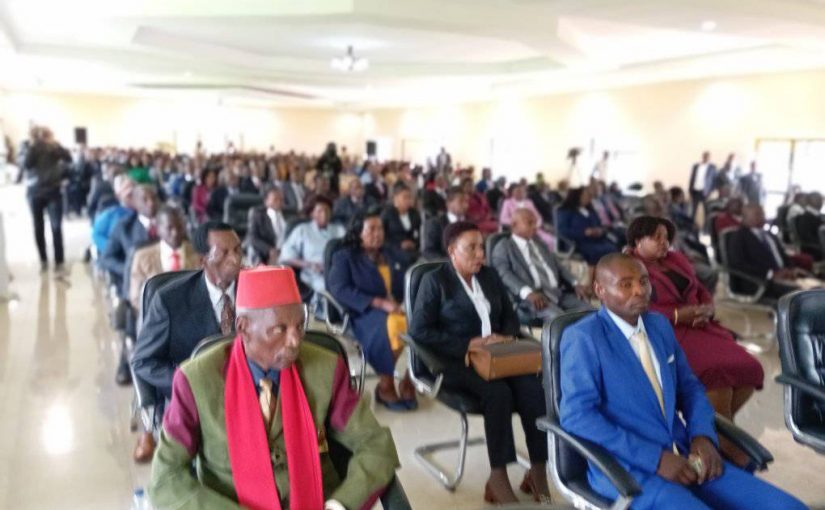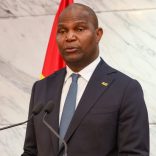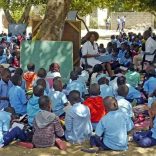Mozambique: Ana Maria Gemo is the new president of the Administrative Tribunal
Mozambique: Governors, Provincial Assembly members sworn in

Swearing in of the Members of the Provincial Assembly of Niassa. [Photo: Jornal Faísca]
The 867 new members of Mozambique’s ten provincial assemblies, elected in the general elections held on 9 October, were sworn in yesterday throughout the country, in the presence of members of the government.
“The provincial assembly is called upon to observe and ensure compliance with the Constitution of the Republic and other laws and technical and ethical guidelines of the central bodies, during its operation,” said Minister of Transport and Logistics, João Matlombe, this Monday.
The Minister, who was speaking during the swearing-in ceremony of the new members of the provincial assembly of Maputo, in the south of the country, observed that this fourth inauguration is part of the new model of decentralised provincial governance.
“It is an unequivocal sign of the consolidation of democracy and citizen participation in governance processes at the local level,” said the minister.
João Matlombe stressed that, as a deliberative body of the provincial decentralized governance, the assembly has “increased powers and responsibilities” in implementing the goals of the 2020/2025 and 2025/2029 terms of office.
“Whether through the approval of the five-year program of the provincial decentralized governance bodies and other development plans of the province, or through the approval of the annual activity plans and budget, as instruments for operationalizing the five-year plan,” he concluded.
On December 23, the Constitutional Council of Mozambique (CC) proclaimed the Mozambique Liberation Front (Frelimo), the ruling party, as the winner of the 10 provincial assemblies, thus electing all the provincial governors in the country.
According to the data announced by the CC president, Lúcia Ribeiro, Frelimo elected Manuel Tule as governor of Maputo province, with 461,257 votes (49.88%).
In Gaza, the ruling party elected Margarida Chongo with 437,921 votes (78.23%), while in Inhambane it elected Francisco Pangula, where he obtained 268,514 votes (70.45%).
In Sofala, Frelimo elected Lourenço Bulha as governor with 403,391 votes (66.02%), in Manica province it had 357,883 votes (76.55%), with Francisca Tomás as governor, while Pio Matos was elected in Zambézia, with the ruling party obtaining 474,965 votes (56.61%).
Domingos Viola will be the governor of Tete province, where theFrelimo party obtained 658,350 votes (78.56%).
Data presented indicate Eduardo Abdula as governor of Nampula, where Frelimo received 413,270 votes (50.71%).
Valige Tauabo is again the governor of Cabo Delgado, where the ruling party obtained 247,672 votes (61.54%), and in Niassa Frelimo obtained 178,757 votes (69.20%), placing Elina Judite in the position of governor.
Out of a total of 867 seats for the ten provincial assemblies, Frelimo also won the majority, according to the proclamation of the CC, having elected 624 members, followed by the Mozambican National Resistance (Renamo) with 97, Podemos with 67, the Democratic Movement of Mozambique (MDM) with 58, the Democratic Revolution (RD) with six, the Humanitarian Party of Mozambique (PAHUMO) with eight, the National Reconciliation Party (PARENA) with five and the Social Renewal Party (PARESO) with two.
Since October 21, when the contestation of the process surrounding the general elections of October 9 began, the Decide electoral platform’s record counts 633 people shot, in addition to 314 deaths and at least 4,228 detained.












Leave a Reply
Be the First to Comment!
You must be logged in to post a comment.
You must be logged in to post a comment.